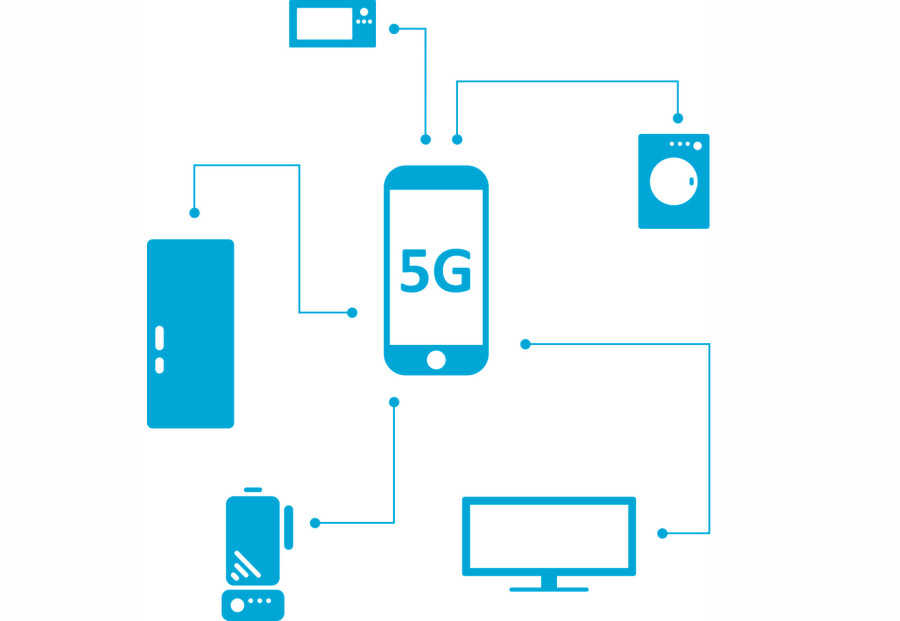Entertainment
The fifth generation
About two years ago, Qualcomm, the telecommunications equipment company, unveiled a chipset that would support next generation connectivity, a successor to 4G. The following year, they named that technology ‘5G’ and now, they’ve been working to bring this feature to the public in early 2019.
Anuj Bhandari
About two years ago, Qualcomm, the telecommunications equipment company, unveiled a chipset that would support next generation connectivity, a successor to 4G. The following year, they named that technology ‘5G’ and now, they’ve been working to bring this feature to the public in early 2019.
5G is a promising technology that hopes to replace fiber-to-the-home (FTTH) connections, which is itself something to aim for. So, Qualcomm has promised quite a few upgrades over 4G to achieve its goals. There are obviously going to be improvements to the data speed, but 5G will also include other enhancements like cost savings and energy reduction.
So, what are the advantages of this new connection over existing mobile communication technology?
Over the years, we have seen various generations of wireless connections. From 2G and 3G, we are currently at 4G, and generally, what we’ve seen over the generations is a substantial increase in terms of speed. So, yes, 5G will be faster than ever.
According to Qualcomm, 5G will provide up to a whopping median 490 megabits per second of speed.
There will also be a decrease in latency during communications. Latency is the time it takes for a sender’s message to reach the receiver’s handset.
5G’s promise of cutting down that time will definitely help in text messaging or even while playing online games. Various companies already have plans to use this advantage to conduct surgeries on patients. Doctors can remotely guide surgeries or perform surgeries through robots with the help of 5G. Furthermore, 5G also brings a better connection to the table. While it is not that noticeable, 4G can sometimes be a little laggy; so 5G will improve connection to devices.
At the Qualcomm Snapdragon Tech Summit 2018, US carriers AT&T and Verizon shared their plans on the development of 5G. These two carriers have already spent millions of dollars as investment in 5G. At the Qualcomm event, OnePlus’ CEO Pete Lau also confirmed that a 5G-enabled OnePlus device is in the works and will be $200-$300 more expensive than the 4G variant. Even the yet-unannounced Samsung flagship for 2019 is expected to cost a lot more than the ‘normal’ variant.
This certainly raises a big question. 5G was expected to reduce data costs for consumers but what’s the point of all that if the phones themselves are going to be sold for a fortune? We are already expecting 5G to face some of the issues that 4G had to initially deal with in 2009. Not a lot of devices supported 4G, and the ones that did had several issues of their own. 4G coverage was a problem, and it is probably going to be the same for 5G. Also, technologies capable of pushing the large amount of data that 5G requires haven’t yet been explored at length.
So, is 5G really worth it? There is a lot of word but this is just the beginning. To provide what has been promised will certainly take time. There is a tendency to criticise a new technology before it even hits the market.
Yes, 5G will be expensive at first, but we need to think about the future. While there are reports that companies like Apple aren’t investing in 5G just yet, the investments that are being made right now will change the future of mobile internet and wireless connectivity.
So, when are we going to see 5G hit the Nepali market? If history is to be a guide then it will definitely take a lot of time. While 4G was launched in 2009, Nepali customers only got access last year. There were eight years in between.
And considering its cost and need for development, it might take a few years for 5G to be available through the telecommunication companies here.
5G commits to a lot. Qualcomm expects it to ensure connectivity between most devices and make communication cheaper and faster. And although there are legitimate concerns about its expected cost and the fact that it will take time to be as stable as 4G is right now, 5G looks promising, and we will definitely hear a lot about it in the days to come.




 11.5°C Kathmandu
11.5°C Kathmandu










